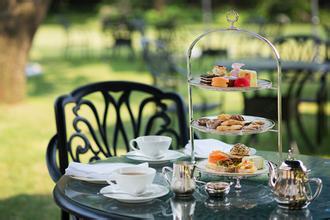Flavor description of Burundian coffee beans introduction to the grinding scale of the regional treatment method for the characteristics of varieties
Burundi Coffee Bean Flavor Description Taste Variety Characteristics Production Area Treatment Method Grinding Scale Introduction
Washing-type coffee flavor is less likely to have wild flavor, with pure, refreshing characteristics, suitable for City to Full City roasting degree; some excellent Ethiopian washing-type coffee beans, sometimes can be perceived as obvious lemon, citrus essential oils, jasmine flowers, honey flavor, etc., sour more obvious, mellow feeling thin. Sun-treated mocha beans have wild flavor in basic flavor, but the degree or more and less difference, more suitable for Full City to Vienna baking degree performance. Excellent sun, mocha beans, with a distinct chocolate finish, some with a pleasant blueberry-like fermented fruity and red-wine texture
Traceability is a common problem faced by coffee growers, green bean buyers and coffee roasters. There are currently about 3500 families working for LMCP. The production picking areas are distributed over eight different hilltops and two treatment sites-Bukeye (operational since 2013) and Heza (operational since 2014). Many variables affect the quality of the final green beans. For example, each hill has a different microclimate, which in turn affects the growth, picking and handling of coffee fruits, and varies from day to day. Nathan James Johnston, owner of Cartel Coffee Roasters in Australia, said: "Working with Long Miles, we can know exactly where coffee is being picked, when and by whom, which means a lot to us about sustainability
"Sustainability" is a common theme in the specialty coffee industry, but most coffee companies still want to get the best coffee at the lowest price, which is not sustainable behavior for local growers. What are our solutions to this?
First of all, let's understand that for most Burundi families, they don't use the money they earn from coffee to buy the most basic needs of life, such as food. All the food they grow in their own yard. On average, families earn just $100 a year, which is usually spent on oil, home maintenance and tuition
The difference between what Ben and Kristy did was that they made the workers realize that LMCP was not an NGO, but a business. All grower neighbors get paid up to three cups at the end of harvest. But money is not easy to earn, and they also need to improve the quality of their work. In 2015, nearly 400 families stopped working with LMCP because coffee quality standards were too high, but by 2016, 1500 new families had signed up because they saw the benefits of the program.

Important Notice :
前街咖啡 FrontStreet Coffee has moved to new addredd:
FrontStreet Coffee Address: 315,Donghua East Road,GuangZhou
Tel:020 38364473
- Prev

Introduction to the Manor of El Salvador Pacamara Coffee Bean Flavor description Grinding scale varieties taste producing area
El Salvador Pacamara coffee bean flavor description grinding scale varieties taste producing area Manor introduced that the planting conditions in Nicaragua are not inferior to those in Central American countries, growing in shaded coffee at high elevations, the taste is round and balanced with less sharp acid, the unknown main factor is the war and hurricanes, resulting in the unsustainable operation of a single farm, and there is no historical data for raw bean merchants to track.
- Next

Description of Coffee Flavor in Sidamo Coffee introduction to the quality of Grinding Calibration by Regional treatment
Sidamo Coffee Flavor description, characteristics of Coffee varieties, processing method, Grinding Calibration quality introduction "Guji producing area" is located in the southeast of Gedeo area, which produces Jega, in a wilderness with an elevation of 2100 meters, but it is higher than that of Yega, with a highest elevation of more than 2600 meters, much higher than the general Sidama, and a larger area. The coffee produced by Guji is rich in flavor.
Related
- Detailed explanation of Jadeite planting Land in Panamanian Jadeite Manor introduction to the grading system of Jadeite competitive bidding, Red bid, Green bid and Rose Summer
- Story of Coffee planting in Brenka region of Costa Rica Stonehenge Manor anaerobic heavy honey treatment of flavor mouth
- What's on the barrel of Blue Mountain Coffee beans?
- Can American coffee also pull flowers? How to use hot American style to pull out a good-looking pattern?
- Can you make a cold extract with coffee beans? What is the right proportion for cold-extracted coffee formula?
- Indonesian PWN Gold Mandrine Coffee Origin Features Flavor How to Chong? Mandolin coffee is American.
- A brief introduction to the flavor characteristics of Brazilian yellow bourbon coffee beans
- What is the effect of different water quality on the flavor of cold-extracted coffee? What kind of water is best for brewing coffee?
- Why do you think of Rose Summer whenever you mention Panamanian coffee?
- Introduction to the characteristics of authentic blue mountain coffee bean producing areas? What is the CIB Coffee Authority in Jamaica?

